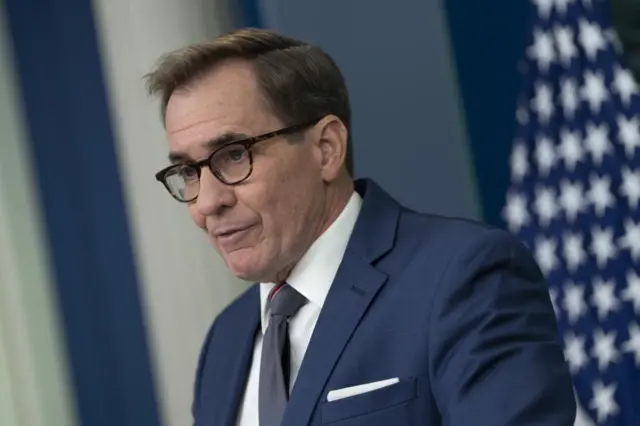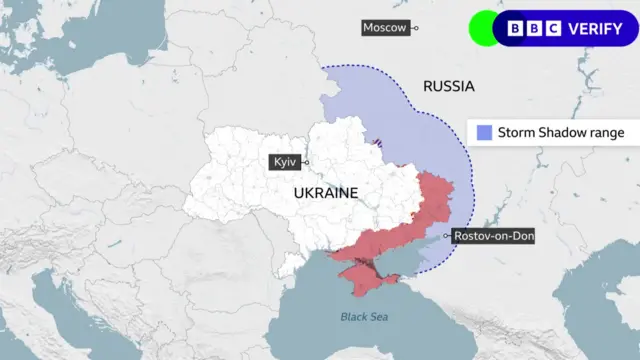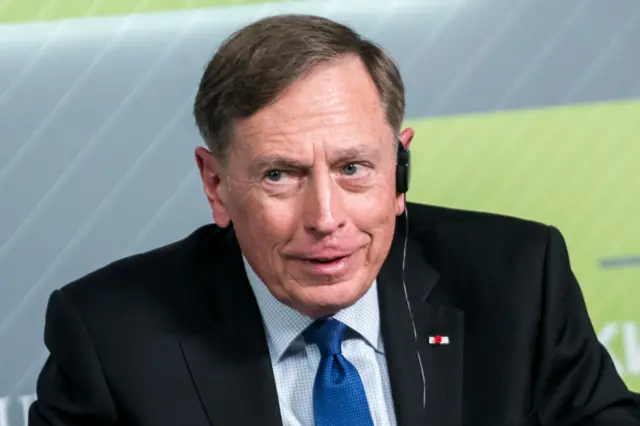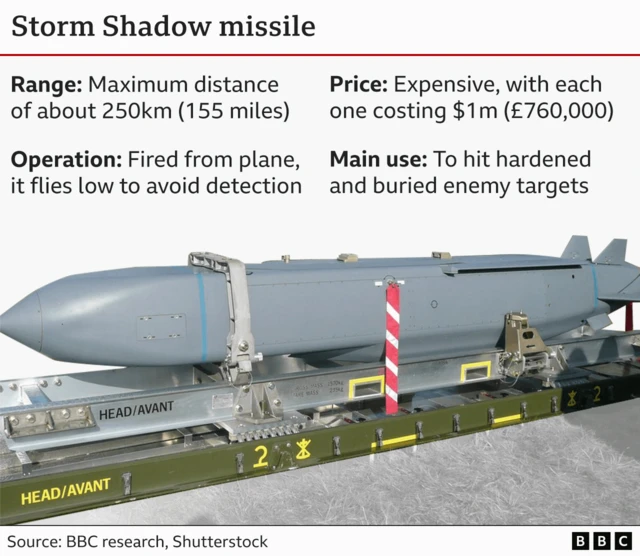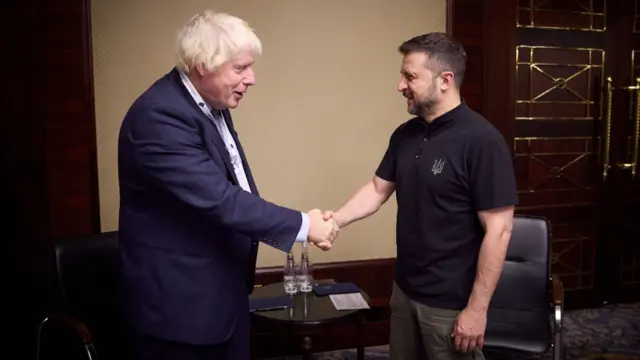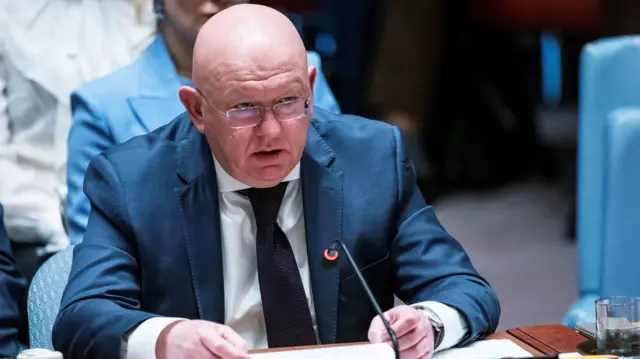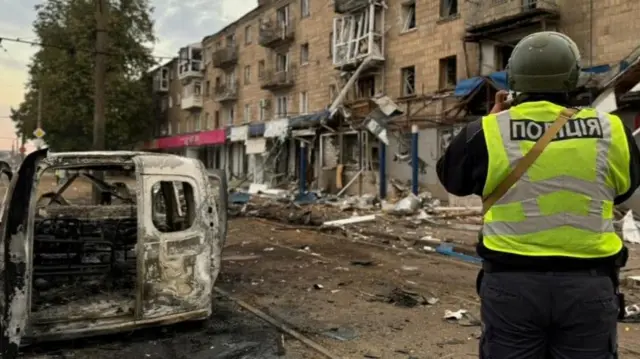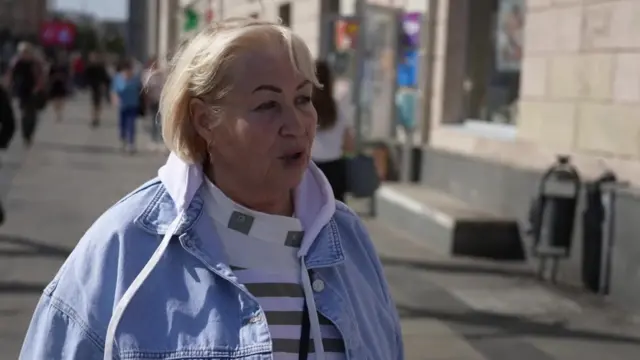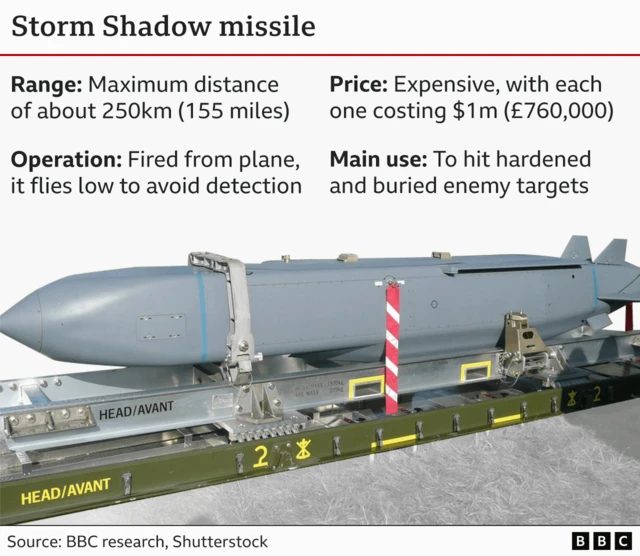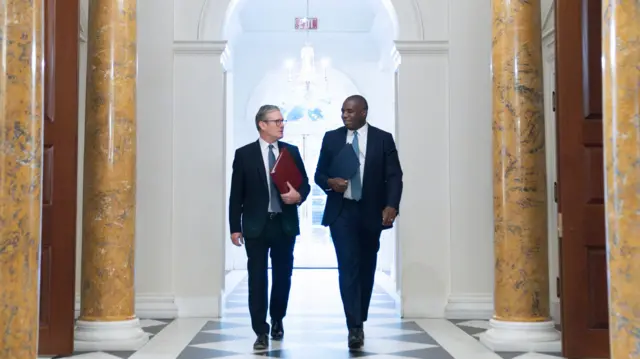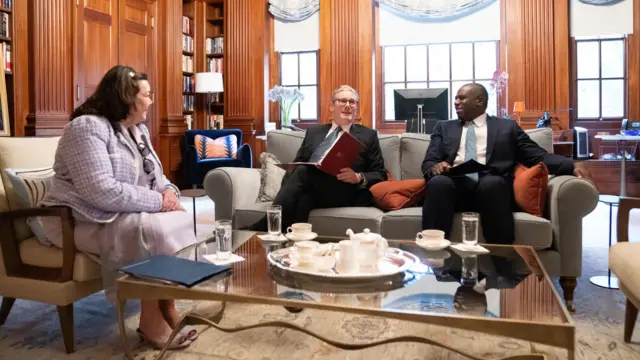US accuses RT of being 'de facto arm of Russia's intelligence apparatus'published at 20:04 BST 13 September 2024
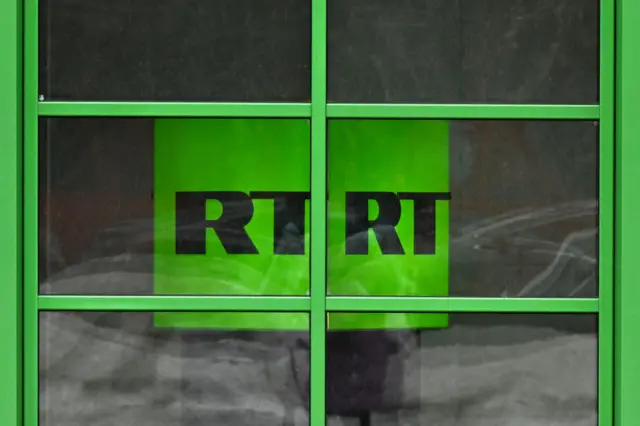 Image source, Getty Images
Image source, Getty ImagesUS Secretary of State Antony Blinken has announced new sanctions against the Russian media channel RT, accusing it of being a "de facto arm of Russia's intelligence apparatus”.
Blinken tells reporters that RT is part of a network of Russian-backed media outlets which have sought to covertly "undermine democracy in the United States".
He adds that the Russian government has "embedded within RT, a unit with cyber operational capabilities and ties to Russian intelligence".
The network, he says, has also sought to influence Moldova's politics in coordination with Russian intelligence ahead of presidential elections in October 2024.
When the US imposed sanctions on some of RT’s top editors last week, the state-funded media organisation reacted with contempt: “Three things are certain in life: death, taxes and RT’s interference in the US elections.”
